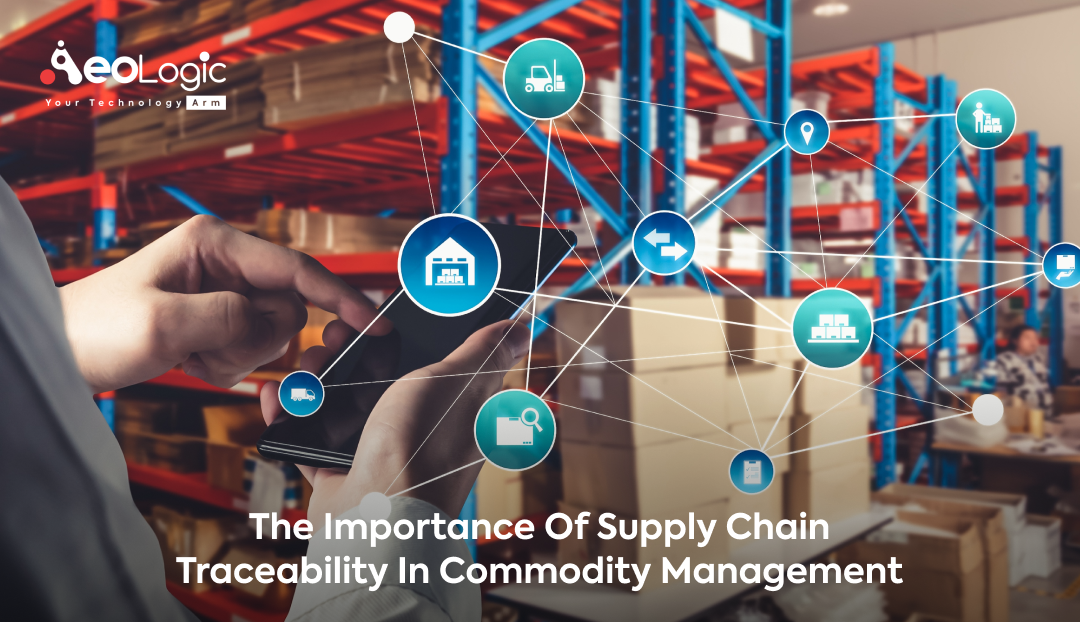Introduction
In today’s global business, where goods play a vital part in different sectors, ensuring translucency and traceability in supply chains is becoming increasingly pivotal. Commodity management involves handling raw materials and products that are traded internationally, making it essential to have robust traceability systems in place. This blog post highlights the importance of supply chain traceability in commodity management and explores the benefits it offers to businesses, consumers, and the environment.
The importance of supply chain traceability in commodity management refers to the capability to track and trace the movement of goods and services at every stage of the process. It involves the use of advanced technology to cover and record the inflow of products from the supplier to the client. The traceability process involves recording and monitoring data similar as product information, supplier information, shipping details, and delivery information. The data collected is also used to identify implicit problems and issues in the supply chain, as well as to ameliorate the overall productivity and effectiveness of the process.
Also read: The Importance of Traceability in Supply Chain Management
Ensuring the Quality and Safety Norms
Importance of supply chain traceability is essential in commodity management to insure adherence to quality and safety norms. By tracing the origin and journey of goods from manufacturing to distribution, businesses can corroborate that products meet the needed quality specifications. This is particularly important in diligence, for example, food and medicines, where consumer safety is imperative.
Traceability systems enable quick identification and eradication of potentially contaminated or imperfect products, avoiding wide recalls and securing public health. By enforcing traceability measures, commodity businesses can maintain consumer trust and confidence in their products, reducing the threat of financial losses due to product recalls or legal arrears.
Mitigating Supply Chain Risks
Commodity management involves navigating complex global supply chains, which are susceptible to different pitfalls such as counterfeiting, theft, and unethical practices. Supply chain traceability helps alleviate these pitfalls by furnishing visibility into each stage of the supply chain, from sourcing to distribution. By tracking and establishing the movement of goods, businesses can identify vulnerabilities and weak points in their supply chains. This enables them to apply applicable threat management strategies, similar as strengthening security measures, checking supplier credentials, and conducting periodic checkups. Proactive threat mitigation measures enhance functional adaptability and cover businesses from financial losses caused by supply chain dislocations or reputational damage.
Meeting Regulatory Compliance
Commodity businesses operate in a largely regulated terrain, with strict conditions assessed by original and transnational authorities. Supply chain traceability plays a vital part in ensuring compliance with these regulations. By directly establishing and tracing the origin of goods, businesses can demonstrate compliance with environmental norms, labor laws, and fair trade practices. This is particularly applicable for sectors like timber, minerals, and husbandry, where illegal or unethical practices can have significant environmental and social impacts.
Non-compliance can cause fines, legal conduct, and reputational damage. Enforcing robust traceability systems not only helps businesses meet regulatory conditions. But also demonstrates their commitment to sustainable and ethical practices. This can attract environmentally and socially conscious consumers, creating a competitive advantage in the market.
Enhancing Sustainability and Ethical Sourcing
Nonetheless, the importance of supply chain traceability plays a pivotal part in promoting sustainability and ethical sourcing practices in commodity operation. By tracking the origins of raw materials, businesses can insure that they are sourced responsibly. Thus, minimizing the negative environmental and social impacts associated with extraction or manufacturing.
Traceability enables businesses to corroborate compliance with instruments similar as organic, fair trade, or sustainable sourcing norms. This allows them to meet the growing consumer demand for ethically produced goods and separate themselves in the market. Also, supply chain traceability facilitates translucency and responsibility throughout the supply chain. Also, it encourages suppliers to borrow sustainable practices, reduces the threat of human rights violations. And promotes fair compensation for workers involved in commodity product. Thus, by embracing traceability, commodity businesses can align with global sustainability pretensions and contribute to a more sustainable and ethical supply chain.
Brand Protection
Subsequently, traceability is also essential in guarding the character of the brand. In the event of a product recall or quality issue, businesses can use traceability data. In order to identify the source of the problem and take corrective action. Therefore, by rapidly addressing any issues, businesses can minimize the impact on customers and maintain their character.
How to Apply Traceability in Supply Chain Operation?
Enforcing traceability in supply chain management requires a combination of advanced technology and effective data operation. Following are some way that businesses can take to apply traceability in their supply chain:
Identify the Data to be Tracked
The first step in enforcing traceability is to identify the data that needs to be tracked. Even more, this includes product information, supplier information, shipping details, and delivery information.
Invest in Technology
Investing in technology similar as barcodes, RFID, and GPS tracking can help to automate the tracking and tracing process. And ameliorate the delicacy of data collection.
Develop Data Management Systems
Effective data management systems are essential in making sure. That the data collected is accurate, up- to- date, and fluently accessible. Businesses can use cloud- enabled software results. In order to manage their traceability data. And induce real- time reports and analytics to cover the performance of the supply chain.
Also read: What is Traceability and Its Challenges in Industry
Not Just a Buzzword
In the realm of commodity operation, supply chain traceability isn’t just a buzzword. However, a basic demand for businesses to thrive. Furthermore, it ensures product quality and safety, mitigates supply chain pitfalls, facilitates regulatory compliance, and promotes sustainability and ethical sourcing. By embracing traceability systems, commodity businesses can make trust with consumers, enhance functional adaptability. And stay ahead in an increasingly competitive and socially conscious business.
Connect with us to know more about traceability solutions for your supply chain business!






